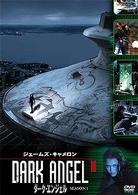- ホーム
- > 洋書
- > 英文書
- > Psychology
Full Description
Permission to Narrate develops exciting new theory and explorations for group analysis. They are diverse in range and, from differing bases in theory and research, aim to cast light on how clients find voice and speak out in groups and the importance of rhetoric in the understanding of communication. It addresses the ways in which silenced, submerged and less confident voices emerge, finding permission and narration, often against the odds. Positioning and dialogical theory is used to show how such voices are caught up in and defined by discourses, and also how we can transcend the definitions and positions into which we are thrown. Accessible clinical and historical examples bring theory to life.Permission to Narrate also uses applied group analytic theory to consider the cultural role and rhetoric of monsters, and what these representations tell us about the position in which human beings conceive themselves. Also explored, using applied group theory, are the meetings of Alcoholics Anonymous and Quakers, both serving as remarkable examples of different, alternative group formations. A chapter on revolutions, in England, France, and elsewhere, demonstrates the role of rhetorical re-definitions of society and an aesthetics of revolt. A semi-autobiographical chapter discusses different interpretations of Freud, over the years, while the final chapter argues that group analysis faces serious 'discipline anxiety' after its first sixty years or so. How it responds to such anxiety can be decisive in terms of our viability and continuing relevance as a discipline and practice. This book will be of interest to clinicians and academics, across disciplines including history, social psychology and cultural studies.
Contents
Foreword , Introduction , The rhetorical ground of group analysis , Taking position: what groups do we bring? , Remembering monsters , Naught but a story to tell*: Alcoholics Anonymous , Revolutionary subjects, bodies, and crowds , Psychoanalytic fascinations: my seven Freuds ... . , Discipline anxiety—time for paradigm change in group analysis? , Epilogue







